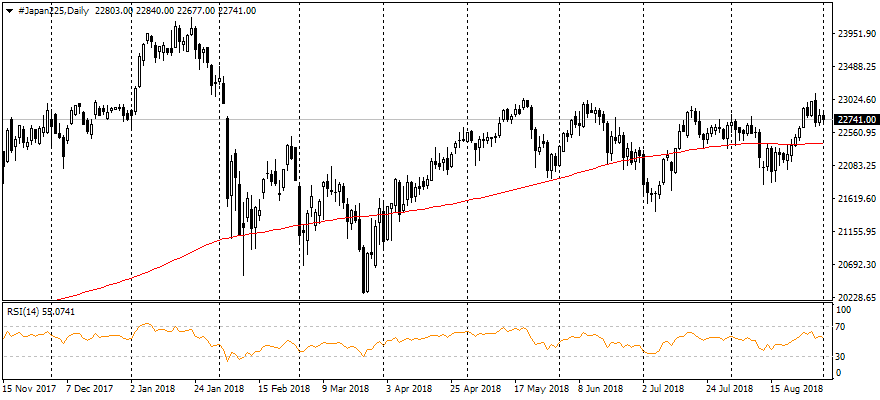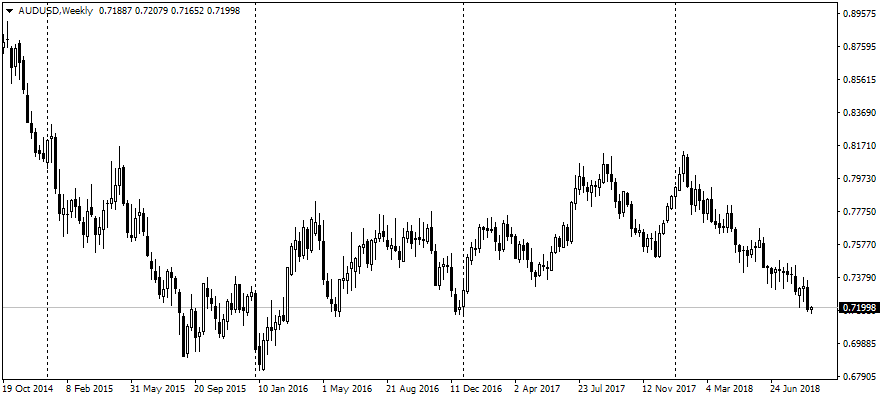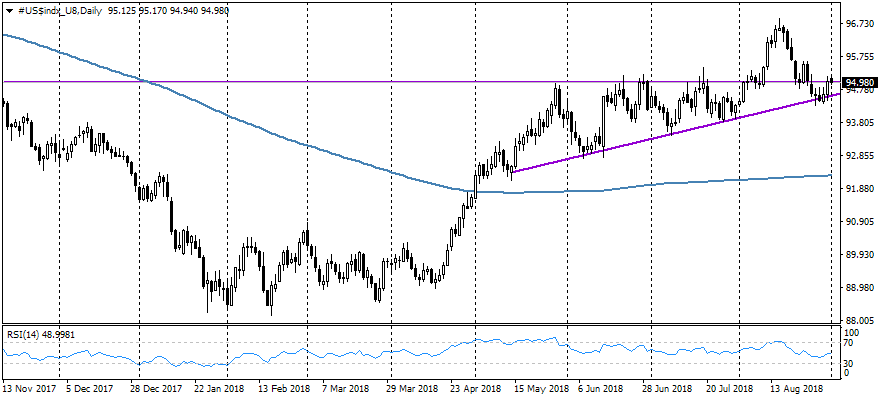Markets under pressure before the busy week
September 03, 2018 @ 11:16 +03:00
Asian markets have been declining for a third consecutive trading session on the fears of the Chinese-U.S. trade tensions escalating. The odds are that Trump will announce the expansion of tariffs for Chinese goods worth from $50 to $200 bln. on this coming Thursday.
Already introduced tariffs significantly suppress investors’ sentiment. India’s companies are gaining an advantage in the production of goods that have already been tariffed, and Russia’s role as an LNG importer for China is growing. The escalation of the trade war risks further disrupting the habitual trade flows in the long term. In the short-term, it risks putting serious pressure on the stock markets. The Shanghai index is traded near the lows of 2.5 years. MSCI Asia-Pacific region without Japan has lost 0.7% this morning; Nikkei225 has decreases by 0.5%.
The demand for protective assets supports the dollar. The dollar index has begun the trading the week at 95.10 – week highs. The EURUSD pair is once again testing support for 1.1600. The Australian dollar at the start of the new week has fallen to 0.7160, the lows since January 2017. The New Zealand dollar sank to 0.66, returning to a decline after a rebound in the previous two weeks. The demand for the protective yen and the dollar can remain the predominant theme of this week in anticipation of important news on the labour market and the announcement of Trump tariffs.
The dollar index in the second half of the week returned to the area above 95 on the turbulence of emerging market currencies, including Argentina and Turkey. These levels of the dollar index continue to act as a strong level of support and attract interest to buying on the dips strategy amid the rising tensions around traditional high-yielding currencies.
The British pound has fallen under 1.29 this morning, giving back more than 60% of the last week splash, when the EU claimed that they were ready to offer a deal to Britain. From the technical analysis side, the British currency has compensated a short-term overbought, and could be under moderate pressure following the global markets.










